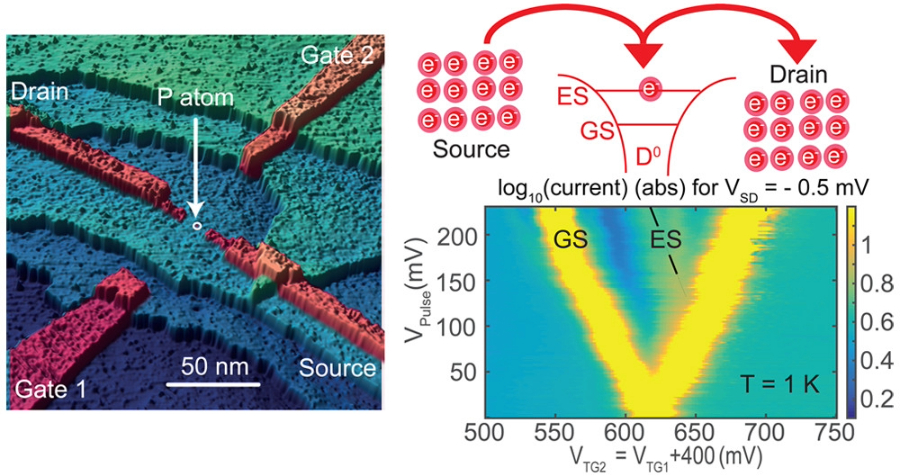The Arrival of Quantum Computing and the Revolution in Electronics of Quantum Transistors
There is a new frontier in the ever-changing world of technology that might completely alter the way we take in data and use it to solve problems. With the advent of quantum transistors, computing power may now be increased exponentially. In this article, we will delve into the fascinating topic of quantum transistors, discussing their nature, operation, and the profound impact they are expected to have in the near future.
An Overview of the Transistor Revolution
Let’s pause for a second and appreciate the role that classical transistors have played in our society before we delve into the world of quantum transistors. From smartphones to supercomputers, transistors are an integral part of today’s technological infrastructure. These tiny semiconductor devices, first developed in the middle of the twentieth century, are the building blocks of digital circuits and function as switches to regulate the flow of electricity.
As our appetite for computation increases, however, the limitations of classical computing have become more obvious. Moore’s Law, which projected that transistor density would double every two years, is starting to hit its physical limits. In this context, quantum transistors play a significant role.
The Impact of Quantum Computing and Transistor Technology
In contrast to classical transistors, quantum transistors are governed by the rules of quantum mechanics, which study the subatomic behaviour of matter and energy. Quantum bits, also known as qubits, are capable of existing in a superposition of both the 0 and 1 states. This quality is the foundation of quantum computing’s unprecedented strength.
In contrast to classical transistors, which operate on bits, quantum transistors operate on qubits. Quantum transistors, by manipulating qubits, can perform complicated calculations at previously unimaginable rates. Entanglement is one of the most intriguing phenomena in the quantum realm because it allows the state of one qubit to instantly affect the state of another qubit regardless of their physical separation. This feature ushers in a brand-new era of information transfer and computing.
Creating Working Quantum Transistors
The creation and widespread use of quantum transistors are enormous technological achievements. Scientists and engineers are working hard to develop stable, programmable qubits that can replace transistors in electronic circuits. Superconducting circuits, trapped ions, and topological qubits are only a few of the physical systems being investigated as possible platforms for quantum transistors.
One of the difficulties is keeping qubits in a coherent state for long enough. An important challenge is overcoming quantum DE coherence, which occurs when qubits lose their delicate quantum states as a result of interactions with their environment. To counteract these effects and develop robust quantum transistors, scientists are applying error correction techniques and cutting-edge cooling technologies.
Advances in Quantum Computing
Quantum transistors’ possible uses are mind-boggling. The intrinsic power of quantum computers allows them to solve tasks that would be too difficult or too time-consuming for traditional computers. They might, for instance, optimize supply chains, revolutionize machine learning and artificial intelligence algorithms, revolutionize cryptography by breaking currently unbreakable codes, and simulate complex quantum systems for drug development and materials science.
It’s important to remember that quantum computers won’t be a drop-in replacement for classical ones. They are very useful in some problem spaces, whereas general-purpose computers are still the best option for most people’s day-to-day needs. This has inspired the concept of hybrid computing systems, which aim to combine the best features of quantum and classical computing.
Obstacles and Future Plans
The road to widespread use of quantum transistors is paved with obstacles, as it is for every innovative technology. Scaling up quantum systems to the point where they can perform practical computations is difficult for many reasons, not the least of which is the difficulty of keeping qubits coherent. Although amazing, today’s quantum computers are limited in terms of their qubit count, and the number of errors increases as more qubits are added.
In addition, it’s not easy to design a stable quantum transistor that can be manufactured in large quantities. Realizing the full potential of quantum computing requires a significant effort: ensuring uniformity and reliability over a large number of qubits.
Conclusion
The incredible development of quantum transistors from abstract ideas to working devices is truly remarkable. These tiny gadgets, which operate on the cusp of quantum mechanical rules, have the potential to revolutionize entire sectors and alter our understanding of computing. With the help of quantum transistors, quantum computing provides a glimpse into a future where impossible obstacles can be conquered with incredible speed and accuracy. As development proceeds, we anticipate the day when quantum transistors will be at the forefront of technology.
Source:
https://www.sandia.gov/media/quantran.htm
http://www.eleceng.ohio-state.edu/~berger/press/quan0900.pdf
https://quantumtransistors.com/
https://quantumtransistors.com/

